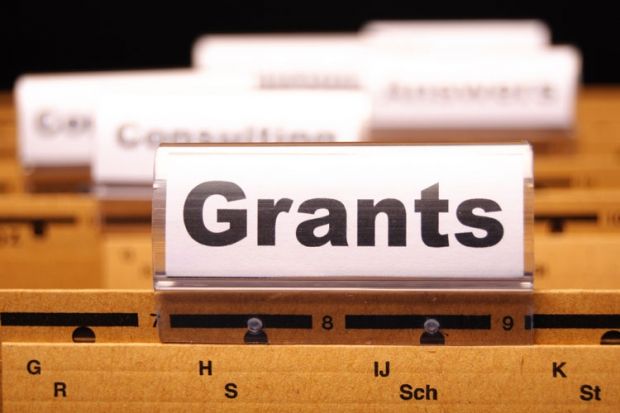Biotechnology and Biological Sciences Research Council
Research grants
- Award winner: Colin Taylor
- Institution: University of Cambridge
- Value: £450,901
Functional properties of a mobile organelle expressing type 2 inositol 1,4,5-trisphosphate receptors
- Award winner: Tracy Lawson
- Institution: University of Essex
- Value: £210,408
Stomatal-based systems analysis of water use efficiency
Economic and Social Research Council
ESRC/DFID Joint scheme for poverty alleviation research
- Award winner: Yusuf Sayed
- Institution: University of Sussex
- Value: £412,024
Engaging teachers in peace-building in post-conflict contexts: evaluating education interventions in Liberia and Sierra Leone
- Award winner: Robin Burgess
- Institution: London School of Economics
- Value: £410,311
Basic entrepreneurship: a means for transforming the economic lives of the poor?
Leverhulme Trust
Research Project Grants
Sciences
- Award winner: Michael Ruzhansky
- Institution: Imperial College London
- Value: £216,178
Phase space analysis on nilpotent Lie groups
- Award winner: Stefan Doerr
- Institution: Swansea University
- Value: £231,575
Carbon sequestration from wildfires? Quantifying the role of pyrogenic carbon
- Award winner: Cristina C. Popescu
- Institution: University of Central Lancashire
- Value: £149,518
Connecting the high and low energy views of the Milky Way
- Award winner: Steven Howdle
- Institution: University of Nottingham
- Value: £234,691
A clean and versatile route to hierarchical structured functional devices
Humanities
- Award winner: Lynn Abrams
- Institution: University of Glasgow
- Value: £180,730
Housing, everyday life and well-being over the long term in Glasgow c.1950–1975
Arts and Humanities Research Council
- Award winner: Pól Ó Dochartaigh
- Institution: University of Ulster
- Value: £408,376
Representations of Jews in Irish literature
- Award winner: Luke Treadwell
- Institution: University of Oxford
- Value: £484,6
Dirhams for slaves: dirham hoards from Northern Europe, trade in Slavic slaves, and the emergence of medieval Europe
In detail

Award winner: Alice Bell
Institution: Sheffield Hallam University
Value: £194,5 (of £239,930)
Reading digital fiction
The project aims to raise awareness of and engagement with digital fiction – fiction that is written for and read from a computer, and can be web- or app-based (for tablets and smartphones) or accessed via CD-ROMs – and increase digital literacies more broadly. Researchers will consider how readers process the multimodal aspects of digital fiction and investigate the relationship between what readers expect to happen in the narrative as a consequence of their actions and what they actually find. Finally, it will look at whether different forms of narration affect the relationship between the reader of digital fiction and the fictional world it describes.
Register to continue
Why register?
- Registration is free and only takes a moment
- Once registered, you can read 3 articles a month
- Sign up for our newsletter
Subscribe
Or subscribe for unlimited access to:
- Unlimited access to news, views, insights & reviews
- Digital editions
- Digital access to THE’s university and college rankings analysis
Already registered or a current subscriber? Login

